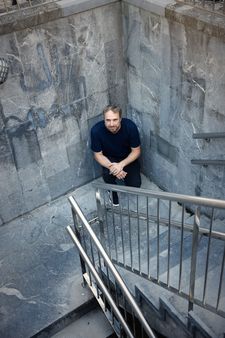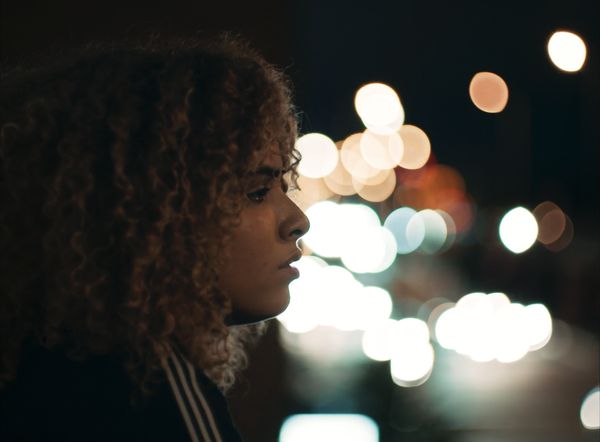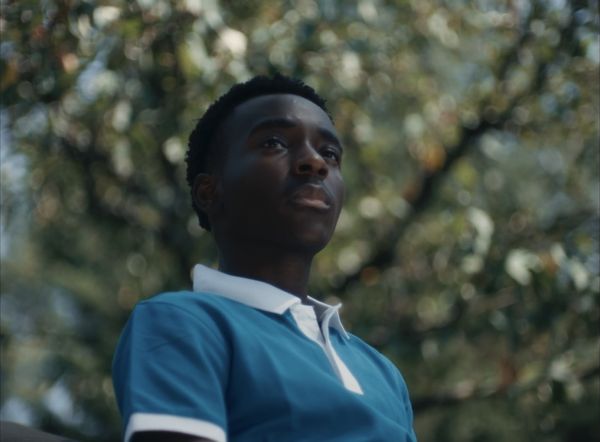The film had its world premiere at the San Sebastian Film Festival, which is where we caught up with Bernadet to talk about it.
Tell me about the workshopping behind this film, because it feels very rooted in reality. How did you go about it because it was presumably a long process?
Henry Bernadet: Yes, very long. A drama teacher in secondary school opened her class to me. I talked a lot with them, trying to find out what they do outside of school, because they're not from my culture. I'm from Quebec city, which is very monocultural. So when I moved to Montreal, I was fascinated by all those cultures. I took a lot of time to get to know them. I made a workshop with a little canvas of my basic ideas, and others that were really from them, an anecdote, maybe an improvisation. Along the way, the ones who wanted to make the film stood out and the ones who were able to be more naturalistic and the more involved in the process. There’s imagination, but also a part of them in the characters. Like Chris Kanyembuga, who plays Toussaint, who finds a bottle is a shy guy, and Chaïmaa was fighting in school. She really wanted to be in the project. And she had something in her that was very inspiring.
 |
| Director Henry Bernadet in San Sebastian: 'I really love British cinema. Mike Leigh and Ken Loach are like gods to me' Photo: Jorge Fuembuena/Courtesy of San Sebastian Film Festival |
Absolutely. There's really documentary scenes in that. The parkour guy was a guy from school who was doing it. When we wanted to shoot a scene, for instance, we’d go to a park and we don't know what was going to happen. Sometimes we do a scene there and it's bad. But then there's this guy who's doing mixed martial arts, who's there and training. And then he's just in the film, it was not. So we had a light crew and it was easier to be surprised by reality. Montreal has been shot a lot but I tried to go to the areas that I hadn’t seen in movies, or were not well known.
Were you ever worried as a native French-speaking Quebecois about taking on these stories of these diaspora kids from different migrant backgrounds and heritage?
HB: No, because I made it my, during three years to get to know them really well. I wanted to do it and they trusted me and I like them a lot. I didn’t just take their stories, there's a lot of my stories also. And then there's their input. So it's a collaboration. It's really a collaboration.
Were there specific challenges because you’re dealing with an ensemble cast, with multiple stories and lots of young people? I feel that would be challenging on the spot when you’re shooting and in the editing room afterwards.
HB: Absolutely. On the spot, I can tell you that it was hard because some of the kids ran away sometimes. So we had a character for, like, two years and suddenly he’s gone, he doesn’t want to do it any more. Or they say, “Today, I'm not going to shoot” - so it was quite fun. But in the editing room it was really a documentary process. It was a work in progress also so I still did some reshoots. Sometimes you have stories that are more powerful in the beginning or in the middle so it was a risk and a big challenge.
When I was watching your film it made me think of British film Rocks, which was also developed through workshops. Do you think there's a trend generally in cinema for people to be trying to lean closer to reality?
HB: Yes. I really love British cinema. Mike Leigh and Ken Loach are like gods to me, even though their approach is really different. Mike Leigh is doing I think my, my improv and then writes a script. Ken Loach is more shooting and going with reality like we did a lot of the time and building strong stories with real people. Also I don't want kids from an agency, I want to meet those real people. I also want to do other movies that are more classical and hire actors. But I love the encounters of this.
So when you were developing it did you write a script or were you doing a lot of improvisation?
HB: We had an arc and some scenes were more written.
I guess the scenes with Toussaint are more written?
HB: Yes, these ones are more written and there are some scenes that are more improvised. Always. At the beginning of the shooting, I give them some sentences - this is the scene. Or a written scene, something we have rehearsed and maybe talked about, except for maybe some lines that they want to punch or say.
I suppose the problem with a film like this is you’ve got to be committed for maybe seven years.
HB: Exactly. Sometimes it's rough when your main character doesn't show up. We shot this over three summers. We did the Fatima story one summer and the two other stories at other times. The time lapse was okay but I had three different directors of photography because they’re not used to this kind of work.
How is it when you finish a massive project like this, which has obviously taken years of your life? Quite a lot more time than many directors. Where do you go from here?
HB: I’d like to do this process again. Maybe not with teenagers but I’d like to continue this. And do more classically made films.
Gamma Rays in out in Canada now























